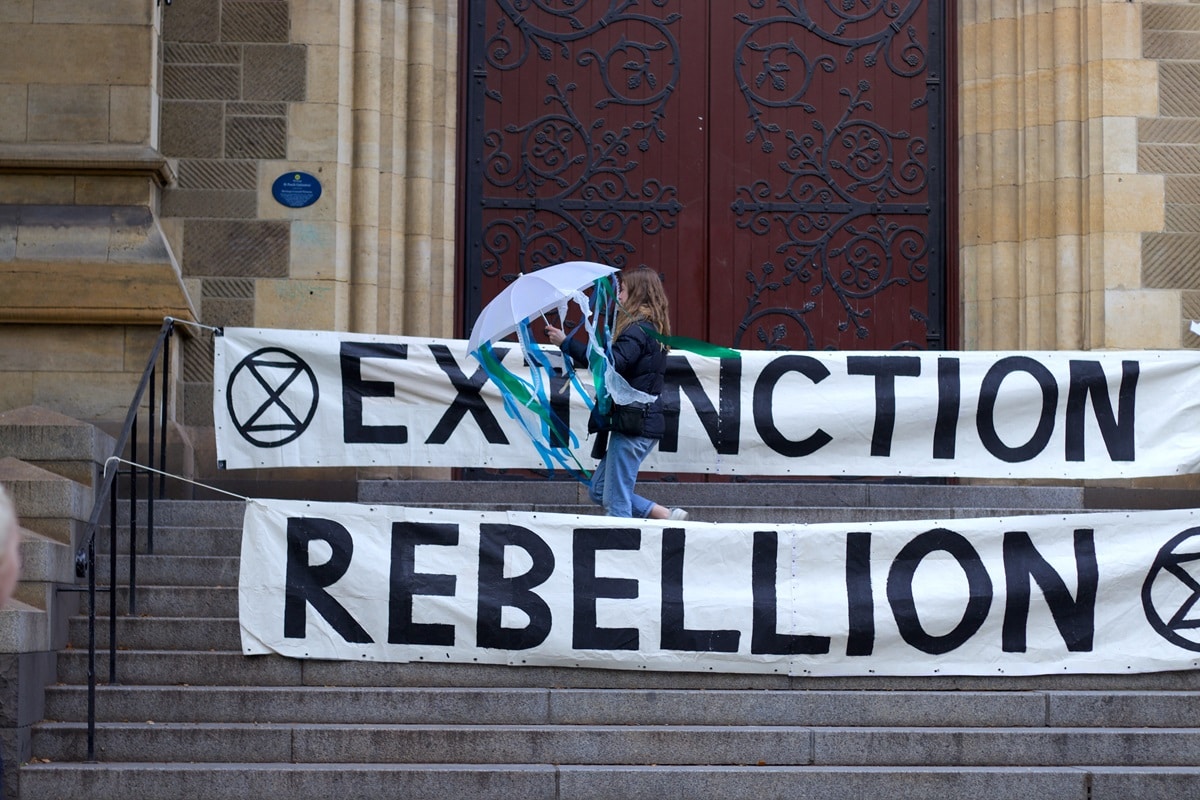Who’d be a young person? The answer used to be an unambiguous cry of “me”. Nowadays, the response is a bit more half-hearted. Or it is for anyone paying attention, at least. In addition to the usual concerns about finding a job, somewhere to live, paying off student debt and the like, there is the increasingly realistic prospect of not having much of a future at all.
Every day seems to see the release of yet another report detailing the environmental problems that threaten to make the planet unliveable – a possibility graphically illustrated by more frequent, increasingly destructive “weather events”. The complex interconnected natural systems upon which human life depends seem to be unravelling before our eyes.
As if all this wasn’t enough of a problem, various entirely pointless, avoidable wars within and between countries are reducing large parts of the planet to rubble. Even those fortunate enough not to be killed or maimed in such conflicts face a bleak future of poverty and immiseration.
True, Australia has demonstrated impressive resilience in the face of the floods and fires that have rapidly become the proverbial “new normal”, and despite the hysteria surrounding the rise of China, no one is threatening to invade or blow us to pieces. Despite this, our political leaders are planning to spend $368 billion on military hardware that is unlikely to ever arrive and won’t make much difference to our or anyone else’s overall strategic position if it does.

That money could be put to much more productive uses, of course, not the least of which is actually making a contribution to addressing the climate crisis by rapidly shifting to a sustainable domestic economy. This would mean reducing our collective reliance on fossil fuels and taking on the powerful vested interests that benefit from them. That’s a political problem that neither Labor nor the Coalition has the will or inclination to solve.
Young people might be forgiven for wondering what’s going on. Do their elders realise that current policy priorities are directly undermining the prospects of their own offspring ever living anything resembling the fabled good life – or even a long one, for that matter. Little wonder that new forms of social mobilisation such as Extinction Rebellion have sprung up in an effort to highlight the dangers we all face and encourage policymakers to act with the urgency they clearly merit.
Yet not only has it proved hard to maintain the momentum of large-scale social movements, but the capacity of smaller groups and even individuals to act is being curtailed by new laws targeting climate activists. Even peaceful protestors now face the prospect of jail time if they are considered to be disrupting public order.
Such questions were thrown into sharp relief when an academic colleague recounted a discussion with an intelligent student who wanted to know what the prospects for effective political action were, and whether the current climate emergency demanded nothing less than a revolution, even if that included civil disobedience or even violence.
Needless to say, the student was told such actions were difficult to justify morally or practically. But the fact that such possibilities were raised at all is revealing. While the prospect of serious social conflict seems unthinkable in Australia, perhaps, it is noteworthy that one in four Americans think that violence may be justified to “save” the country from their political opponents.
Not only are many Americans heavily armed, of course, but the country was born as a consequence of violent struggle and subsequently experienced a civil war that resulted in the deaths of around 2.5 per cent of the population, which would equate to something like seven million deaths today. A growing number of commentators are concerned that civil conflict is far from impossible in the United States, especially if Donald Trump is returned to power.
Let’s hope it doesn’t happen, but it’s potentially another big thing to fret about for the more thoughtful members of the younger generation. After all, if it did, doing anything about climate change – which definitely is coming to get us if we don’t stop it – would become a second order issue and infinitely more difficult to address as a consequence.
In such circumstances, the epic levels of opioid addiction, anxiety and anomie are more understandable and possibly easier to tolerate for ruling elites than possible alternatives. Despite this, Joe Biden insists the United States remains a beacon of light for the world. But as Thomas Jefferson, another famous American suggested, “every generation needs a new revolution”. Perhaps we’re overdue.
Main image by Unsplash user BP Miller

